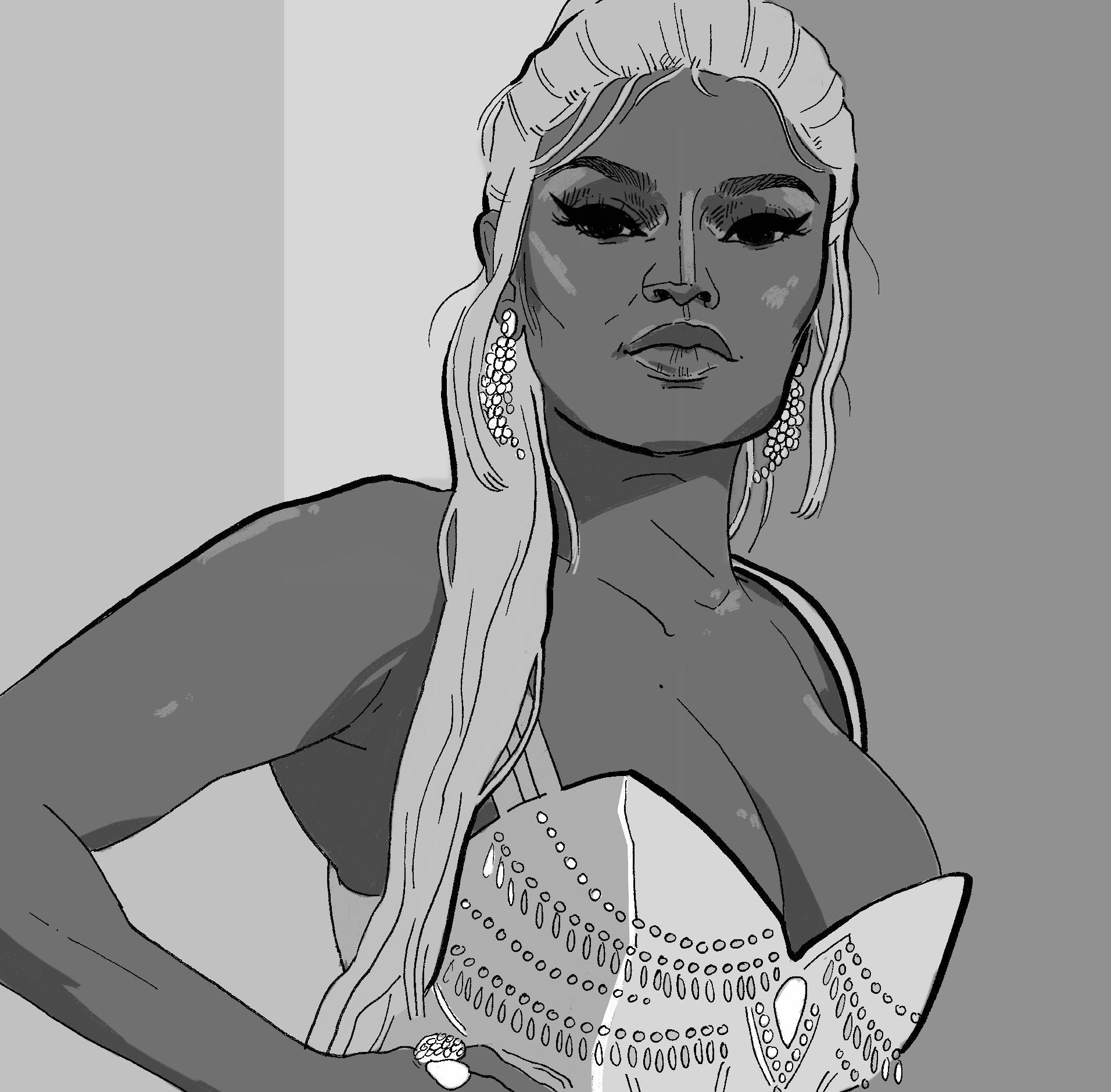
Arguably the most notorious female rap icon in music history, Onika Tanya Maraj, better known as Nicki Minaj, announced her retirement via Twitter on Sept. 5.
“I’ve decided to retire & have my family,” Minaj tweeted. “I know you guys are happy now. To my fans, keep reppin me, do it til da death of me, X in the box- cuz ain’t nobody checkin me. Love you for LIFE.”
Minaj plans to release one last album later this year before she retires. She released the first single “Megatron” on June 21. “Megatron,” similar to past singles like “Superbass” and “Barbie Tingz,” has the fixings of a hip-hop pop piece that is signature to her style. The production and heavy use of autotune on the hook is reminiscent of Minaj’s earlier album “Pink Friday: Roman Reloaded,” yet her bars are comparatively mature and run parallel with content from her fourth studio album, “Queen.”
Minaj’s success and influence cannot be overlooked. From her first studio album “Pink Friday” going platinum to being the first woman to have 100 entries on the Billboard Hot 100 chart, she has the qualifications to claim the title “Queen of Rap.” As she rose in the music industry, she became a pioneer of bridging rap with pop. As commonplace as it may seem now, featuring hip-hop artists on pop singles was first explored by revolutionaries like Minaj.
Minaj is explicit, and her unapologetic embrace of female sexuality has been profound. While the ’90s heard “I wanna shoop” from Salt-N-Pepa, audiences now hear “I f*ck him like I miss him” from Minaj. Prior to her success, similar language was almost exclusively used by male rappers. However, since her rise to popularity, this is no longer exclusively a male-dominated norm.
Minaj has challenged music industry standards by demonstrating women can be successful in rap. Lizzo, Cardi B, Rico Nasty and Azealia Banks thrive from celebrating their sexuality that was partly popularized by Minaj. However, even though she has advanced the music industry, both as a whole and for women in particular, she remains a controversial public figure.
While her success has encouraged women, she has collaborated with musicians such as Tekashi 6ix9ine, Chris Brown and Tyga, all of whom have been accused of mistreating women. She has belittled contemporaries like Lil’ Kim and will be retiring to marry Kenneth Petty, a man charged with attempted rape in the first degree of a 16-year-old girl. Minaj seems to be writing songs to empower women, yet her actions seem to support opposing values.
As production for this barbie winds down, it is important to remember that while Minaj was not a champion of women’s rights in the limelight, her career made advancements for women in the rap industry. Even though she did not use her platform to call out this industry for its mistreatment towards women, she has made room for future generations to have precisely that opportunity.
Subscribe to the Mossy Log Newsletter
Stay up to date with the goings-on at Lewis & Clark! Get the top stories or your favorite section delivered to your inbox whenever we release a new issue.

Leave a Reply